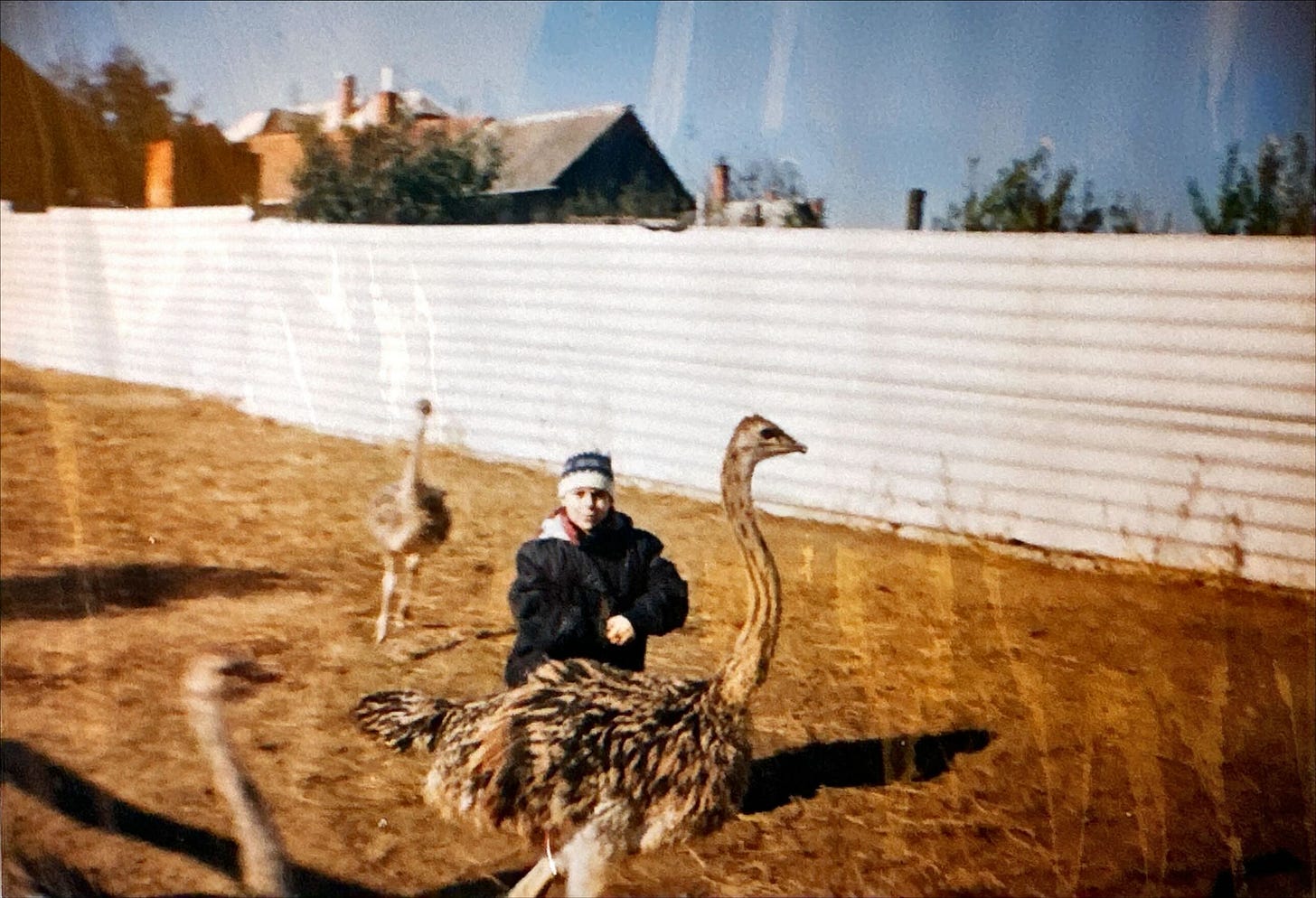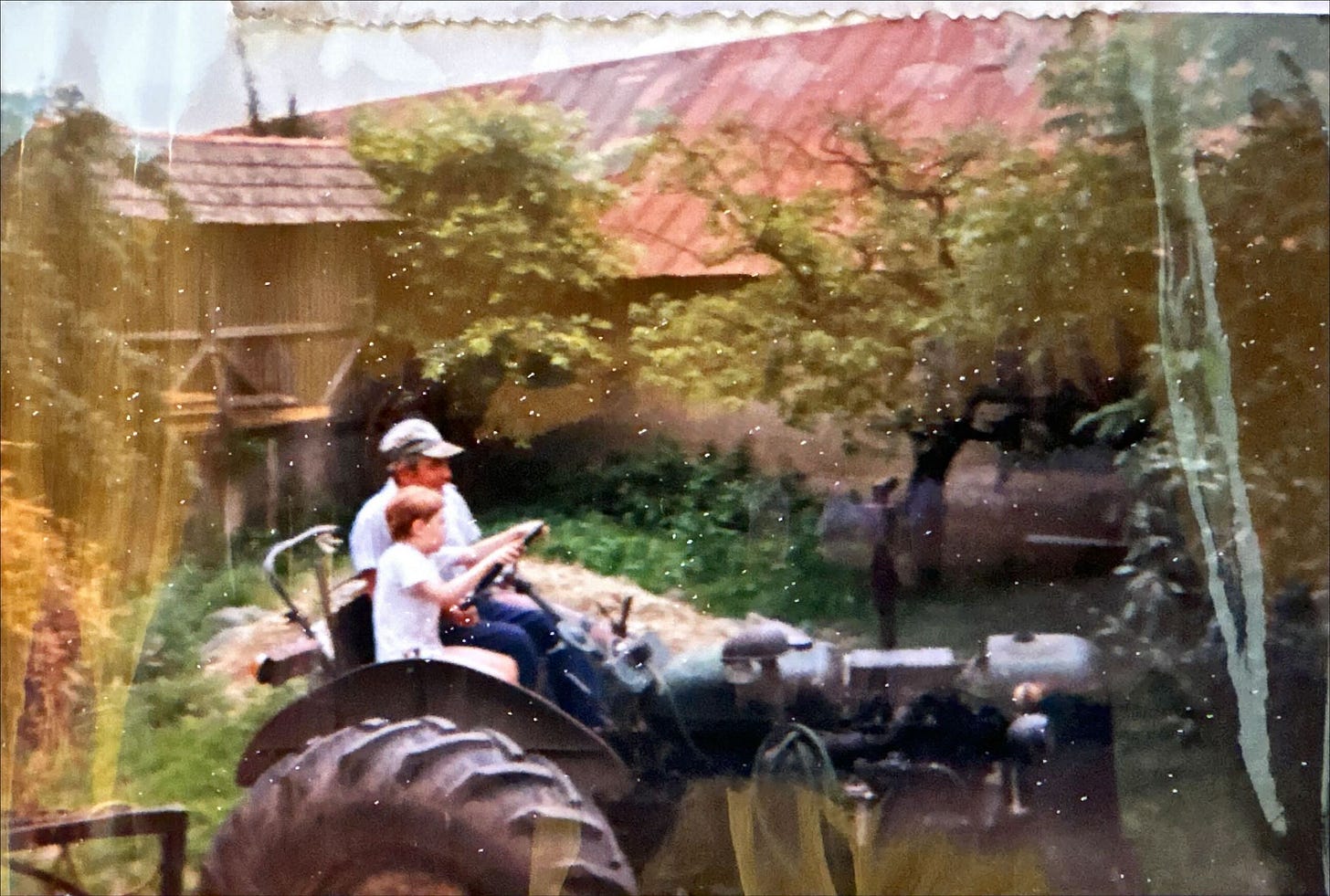When I was a kid, I used to spend most of my summers at my grandparents’. They were farmers, cultivating acres and acres of land. They also raised all kinds of livestock: pigs, goats, chickens, and at some point, about four dozen ostriches as well.
My grandfather has always wanted to teach me how to raise farm animals and tend to the crops. In his eyes, I wouldn't be a man until I could plow a field. However, I was born and raised in the city, and even though I spent a lot of time at the farm, agriculture was far from my interests.
I wanted nothing to do with it, and I could afford not to.
Even though I'm a soft city boy who is unlikely to survive the collapse of our modern civilization, I have gained other skills. By surrendering my self-reliance to the agricultural supply chain, I was able to get a university-level education and build on top of the social and economic layer constructed by the generations before me.
Don't get me wrong: I have learned my fair share of skills from the farm. I can drive a tractor, milk a goat, stuff a sausage, and if pressed hard, maybe even slaughter a chicken.
I don't have to produce food, but I couldn't live without the people who do. I'm grateful to them for doing so.
When I was a young student, my math teacher went berserk every time she saw a calculator. She really went all out: had them banned, and we were never, ever allowed to use one.
That was understandable up to a point. Working with numbers by hand is an essential stepping stone toward higher-level concepts such as numeral systems, algebraic equations, and so on. However, once the foundations are stable, we can gradually introduce the technology that trims complexity by eliminating mundane tasks, allowing us to focus on the challenging ones instead.
Since then, the wheels of technology have turned a couple of cycles, repeating the same pattern with each rotation.
We master cursive before embracing text editors, never having to write essays with our hands ever again. We recite facts and poems by heart before letting our lexical knowledge atrophy by relying on Google and Wikipedia. We wrangle arrays with malloc and calloc in C before moving on to Python, never having to manually manage memory ever again.
As the generations pass, old skills and technologies fade into the arcane, known only by the few whose work we rely on. Just like I never had to grow my food, the next generation won't even have to go shopping for groceries, because it'll be delivered to them. They won't have to read books, write in cursive, add two numbers together, or learn the C programming language unless they want to.
Now, it's the large language models’ turn. Just like we outsourced our food production to the agricultural sector and our memory to Google, we are about to outsource our creativity and cognitive capabilities to ChatGPT.
Each technological jump is a double-edged sword, presenting an opportunity to gain a new skill for leaving another behind.
Sometimes, we lose mental skills, physical traits, or even entire sets of organs. We have to cook our food now, and we cannot run as fast as our ancestors used to. We don’t have tails anymore, and our body hair hardly functions as insulation. However, our civilization grants unlimited access to fire and complete protection from wild animals.
This time, it's not a move from using our brains towards surrendering our cognitive capabilities; it's a move from “how to solve” problems towards “what to solve”.
Should you make this deal? Should we, as the human species?
I don't know. Here's what is sure: regarding any technological advance, there are two potential mistakes to be made—overreliance and dismissal. Both of them are forms of zealotry.
Granted, the sweet spot might not always be in the middle—I'm more favorable toward Western medicine, but more dismissive of TikTok. The middle road is not always the best, and sometimes, extreme positions have to be taken.
For AI, I’m about 40% in, 60% out. Yes, I know. I’m getting older.
Personally, my lexical knowledge is small(er than the previous generation’s), but I am excellent at finding patterns. I can't write high-performance code in low-level libraries, but I'm building awesome applications and tools from them.
However, I'm just an enabler for the next generation of builders, just like my grandfather’s work enabled my father to get an education and become an OG programmer. And in turn, my father’s work enabled me to move one step further: he used punch cards and later C; I work in Python, relying on high-level libraries such as PyTorch and FastAPI.
My son, whom I’ll meet for the first time three months from now, will probably never use Python. For him, it’ll be an ancient relic—just like C is to me.
And that's how it should be.








Love this. This is super well written. Also, congrats on boy! Nothing has made an impact on my life as much as fatherhood.